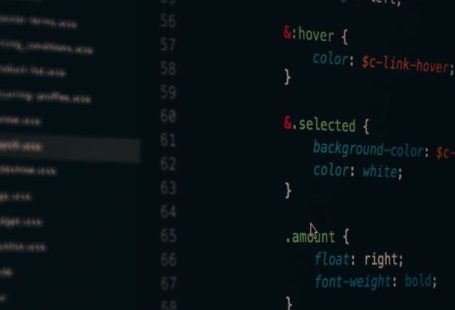When it comes to web development, choosing the right programming language is crucial. Different languages have unique features that make them suitable for various aspects of web development. Understanding the strengths and weaknesses of each language can help developers make informed decisions about which languages to use for their projects. In this article, we will explore some of the best languages for web development and discuss their key characteristics.
### HTML
HTML, or Hypertext Markup Language, is the foundation of web development. It is used to create the structure and content of web pages. HTML is a markup language that defines the elements on a page, such as headings, paragraphs, images, and links. It is a simple language to learn and is essential for anyone looking to build websites.
### CSS
Cascading Style Sheets (CSS) is a styling language that is used to control the layout and design of web pages. CSS allows developers to customize the appearance of their websites, including colors, fonts, spacing, and more. By separating the content (HTML) from the design (CSS), developers can create visually appealing websites that are easy to maintain and update.
### JavaScript
JavaScript is a versatile programming language that is used to add interactivity to websites. With JavaScript, developers can create dynamic elements such as sliders, pop-ups, animations, and interactive forms. JavaScript is also commonly used for client-side validation and to communicate with servers to fetch and display data. It is a powerful language that is essential for creating modern, responsive web applications.
### Python
Python is a high-level programming language that is known for its simplicity and readability. It is widely used in web development for backend programming, data analysis, and artificial intelligence. Python has a large community of developers and a vast ecosystem of libraries and frameworks that make it easy to build web applications quickly and efficiently.
### PHP
PHP is a server-side scripting language that is commonly used for web development. It is especially well-suited for building dynamic websites and web applications that interact with databases. PHP is easy to learn and has a low barrier to entry, making it a popular choice for beginners. It is compatible with various database systems, such as MySQL and PostgreSQL, and is supported by most web hosting providers.
### Ruby
Ruby is a dynamic, object-oriented programming language that is designed for simplicity and productivity. It is commonly used with the Ruby on Rails framework, which is known for its convention over configuration approach to web development. Ruby on Rails provides developers with a set of tools and best practices that streamline the development process and promote code reusability.
### Java
Java is a versatile programming language that is used for a wide range of applications, including web development. It is known for its portability, scalability, and performance. Java is commonly used for building enterprise-level web applications that require high levels of security and reliability. It is a popular choice for large organizations and businesses that need robust, scalable solutions for their web projects.
### Conclusion: Choosing the Right Language
When choosing a language for web development, it is essential to consider the requirements of the project, as well as the developer’s experience and preferences. Each language has its strengths and weaknesses, and the best language for a particular project will depend on factors such as performance, scalability, security, and community support. By understanding the characteristics of different languages, developers can make informed decisions that will help them build successful web applications.





